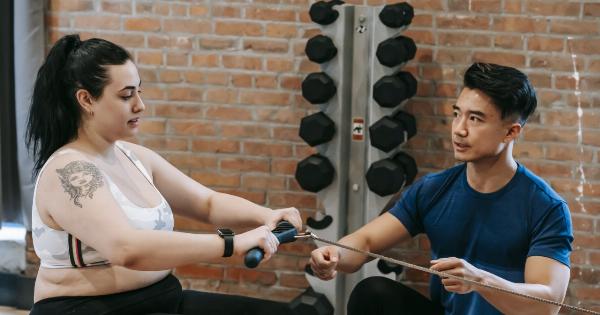As we age, our muscles tend to weaken, making it challenging to perform everyday activities like walking, standing up, or carrying groceries.
Maintaining an active lifestyle and proper nutrition can slow down muscle deterioration and improve muscle strength. A key nutrient that can help strengthen muscles, particularly for individuals over 50, is protein.
The Importance of Protein
Protein is an essential macronutrient that plays various roles in the body, such as building and repairing tissues, producing enzymes and hormones, and supporting the immune system.
It also helps maintain muscle mass and strength, making it essential for individuals over 50 who may experience muscle loss or sarcopenia.
The recommended protein intake for individuals over 50 is between 1 to 1.2 grams per kilogram of body weight per day.
However, some studies suggest that increasing protein intake to 1.5 to 2 grams per kilogram of body weight may be more effective in preserving muscle mass and strength.
Best Sources of Protein for the Over 50s
While protein can be found in various food sources, not all protein sources are created equal. Here are some of the best sources of protein for the over 50s:.
1. Lean Meat and Poultry
Lean meat and poultry, such as chicken, turkey, beef, and pork, are excellent sources of protein. They are also low in calories and fat, making them ideal for individuals who need to control their weight.
2. Fish and Seafood
Fish and seafood are also excellent sources of protein. They are rich in omega-3 fatty acids, which can help reduce inflammation and improve heart health. Examples of fish that are high in protein include tuna, salmon, and tilapia.
3. Eggs
Eggs are a versatile and affordable source of protein. They are also rich in essential amino acids that the body cannot produce on its own. Eating eggs for breakfast can help increase protein intake and keep you full throughout the morning.
4. Dairy Products
Dairy products, such as milk, yogurt, and cheese, are also excellent sources of protein. They are also rich in calcium, which can help improve bone health.
However, individuals who are lactose intolerant may need to choose lactose-free or plant-based alternatives.
5. Beans and Legumes
Beans and legumes, such as lentils, chickpeas, and black beans, are plant-based sources of protein. They are also rich in fiber, which can help improve digestion and reduce the risk of chronic diseases such as diabetes and heart disease.
The Benefits of Protein for the Over 50s
Consuming enough protein can have numerous benefits for individuals over 50, including:.
1. Improving Muscle Strength and Function
Protein is essential for building and maintaining muscle mass and strength. It can also help improve balance, mobility, and reduce the risk of falls in older adults.
2. Reducing Muscle Loss and Sarcopenia
As we age, we experience a natural decline in muscle mass and strength, known as sarcopenia. Consuming enough protein can help slow down muscle loss and improve overall muscle function and quality of life.
3. Supporting Bone Health
Protein is also essential for maintaining bone health. It can help improve bone density and reduce the risk of fractures and osteoporosis in older adults.
4. Promoting Weight Loss
Consuming adequate protein can help reduce appetite and promote feelings of fullness, making it easier to manage weight and reduce the risk of obesity and related chronic diseases.
Conclusion
Consuming enough protein is essential for maintaining muscle mass, strength, and overall health, particularly for individuals over 50 who may experience muscle loss and sarcopenia.
Including protein-rich foods, such as lean meat, fish, eggs, dairy, and beans, can help improve muscle function, bone health, and weight management.




























